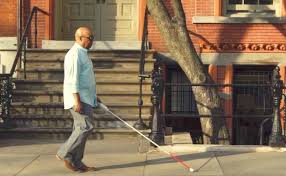
Breaking News
Importing Poverty into America: Devolving Our Nation into Stupid
 Grand Theft World Podcast 273 | Goys 'R U.S. with Guest Rob Dew
Grand Theft World Podcast 273 | Goys 'R U.S. with Guest Rob Dew
 Anchorage was the Receipt: Europe is Paying the Price… and Knows it.
Anchorage was the Receipt: Europe is Paying the Price… and Knows it.
 The Slow Epstein Earthquake: The Rupture Between the People and the Elites
The Slow Epstein Earthquake: The Rupture Between the People and the Elites
Top Tech News
 Drone-launching underwater drone hitches a ride on ship and sub hulls
Drone-launching underwater drone hitches a ride on ship and sub hulls
 Humanoid Robots Get "Brains" As Dual-Use Fears Mount
Humanoid Robots Get "Brains" As Dual-Use Fears Mount
 SpaceX Authorized to Increase High Speed Internet Download Speeds 5X Through 2026
SpaceX Authorized to Increase High Speed Internet Download Speeds 5X Through 2026
 Space AI is the Key to the Technological Singularity
Space AI is the Key to the Technological Singularity
 Velocitor X-1 eVTOL could be beating the traffic in just a year
Velocitor X-1 eVTOL could be beating the traffic in just a year
 Starlink smasher? China claims world's best high-powered microwave weapon
Starlink smasher? China claims world's best high-powered microwave weapon
 Wood scraps turn 'useless' desert sand into concrete
Wood scraps turn 'useless' desert sand into concrete
 Let's Do a Detailed Review of Zorin -- Is This Good for Ex-Windows Users?
Let's Do a Detailed Review of Zorin -- Is This Good for Ex-Windows Users?
 The World's First Sodium-Ion Battery EV Is A Winter Range Monster
The World's First Sodium-Ion Battery EV Is A Winter Range Monster
 China's CATL 5C Battery Breakthrough will Make Most Combustion Engine Vehicles OBSOLETE
China's CATL 5C Battery Breakthrough will Make Most Combustion Engine Vehicles OBSOLETE
Blind Man Develops Smart Cane That Uses Google Maps and Sensors to Identify One's Surroundings

This electronic walking stick is revolutionizing the way that blind people can navigate the world.
As a means of protecting people from low-hanging objects and obstacles above chest level, the WeWalk smart cane uses ultrasonic sensors to warn the user of nearby hindrances through vibrations in the handle.
The cane can be paired with a smartphone's Bluetooth system for easy control. Since it is also integrated with Voice Assistant and Google Maps software, it can use built-in speakers to inform the user of nearby stores and infrastructural details that they may not be able to see.
WeWalk CEO and co-founder Kursat Ceylan, who is also blind, told CNN that he helped to develop the cane out of a desire to use modern technology as a tool for the visually impaired.
"In these days we are talking about flying cars, but these people have been using just a plain stick," he told the news outlet.
"As a blind person, when I am at the Metro station I don't know which is my exit … I don't know which bus is approaching … [or] which stores are around me. That kind of information can be provided with the WeWalk."



